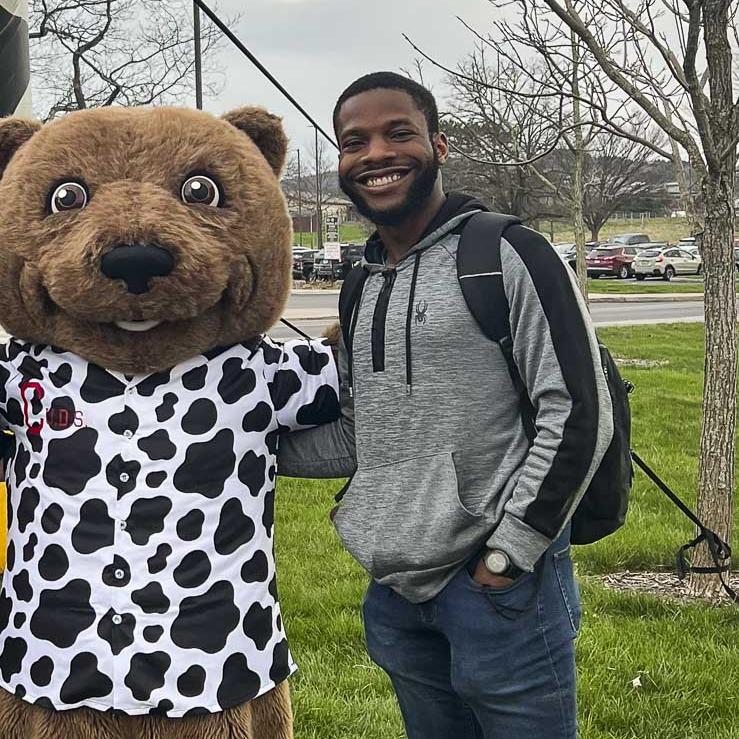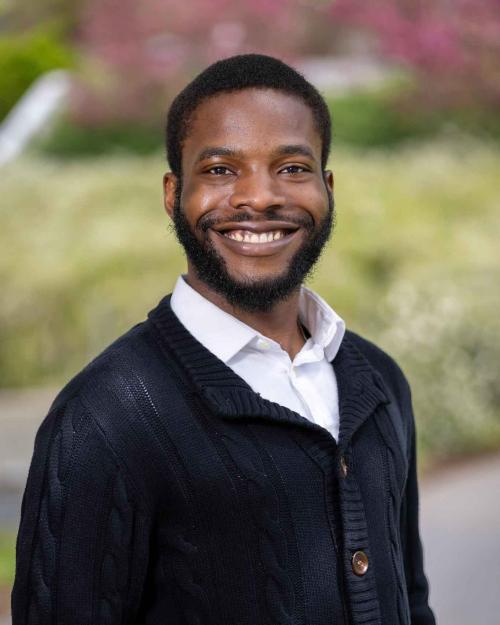Daniel Obaseki
Government
Bronx, N.Y.
What was your favorite class and why?
Without a doubt, it is Nature Functions and Limits of Law by Professor Dawn Chutkow. She teaches with extraordinary insight, mixing humor and education in a manner that I have seldom seen from other professors. Professor Chutkow seems to have a unique talent for covering an incredible amount of dense legal material in a manner that is not only understandable to students, but in one that motivates us to learn more about the course’s contents. I was lucky that she teaches in the area that I aspire to make my career in, and would recommend all prospective law students to take both of her classes.
What is your main extracurricular activity and why is it important to you?
I happily commit most of my time to serving as the President of the Cornell Political Union. Their diverse array of speakers and vibrant community centered on spirited debate motivated my decision to come to Cornell. I can say with absolute confidence that my years in this organization have been the most enriching and transformative I have experienced within any community. The respectful challenging of my political views has enriched my understanding and appreciation of all directions of the political spectrum. Each of the organization’s caucuses has been nothing but welcoming, and the strong ties our organization has formed with other student groups allow us to engage more widely in meaningful dialogues on campus. CPU's importance to me lies in its mission to promote good-faith dialogue on campus, especially in an environment that can become quite divisive for those politically involved, and daunting for those who wish to be. I am grateful to have been its leader and look forward to hearing great things as an alumnus.
What are the most valuable skills you gained from your Arts & Sciences education?

Undoubtedly, they are the skills of critical thinking and articulate expression. While not as specialized as other technical proficiencies that are common in STEM, my ability to rigorously analyze texts significantly deepens my comprehension and its interconnections with the world. This has also strengthened my ability to understand the complexities of other people, allowing me to better engage and understand my peers. This improvement in my engagement is further improved by the skills of articulating my words, both vocally and in writing, which are invaluable for building and maintaining the various relationships I have with my peers and faculty. Because of these skills, I have not only grown academically but also as an effective communicator.
Who or what influenced your Cornell education the most?
The many political discussions and debates that I had with my friends and speaking guests in CPU, and within its caucuses, certainly impacted my education the most. From these discussions, I learned a myriad of concepts that I never came across in the classroom, intriguing me enough to research them later. These experiences, and the knowledge gained from them, often complimented what I learned in the classroom, and sometimes informed the assignments I would submit to these classes. Ultimately, the informal education that I received beyond my formal one truly enriched my learning experience.
If you were to offer advice to an incoming first year student, what would you say?
Explore. Explore as much as possible during to discover your niche. Of course, you may not find it at first, or you may grow beyond it, but the experiences and connections that can be made from the breadth of your opportunities at Cornell will always yield dividends. You may never again be in an environment similar to that of Cornell for such a long time, so take advantage of these opportunities while you can.
Every year, our faculty nominate graduating Arts & Sciences students to be featured as part of our Extraordinary Journeys series. Read more about the Class of 2024.





